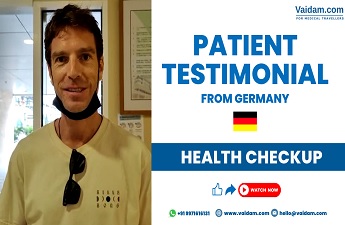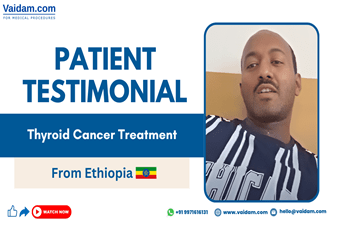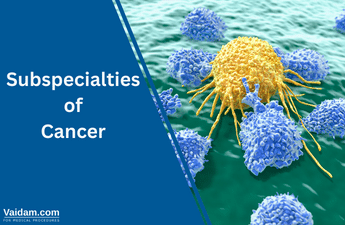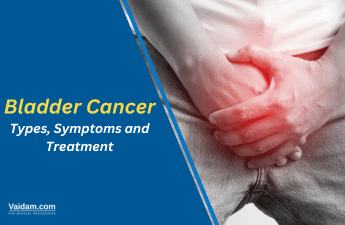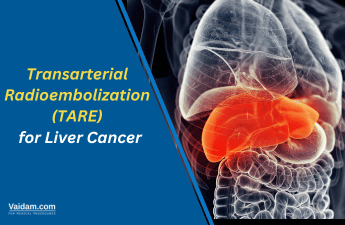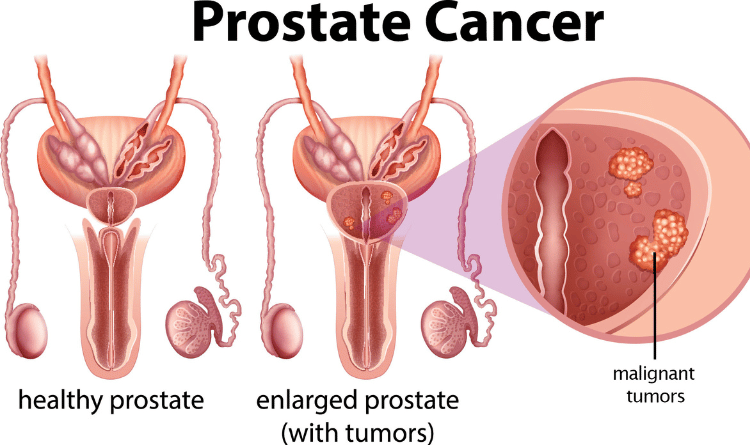
Getting diagnosed with cancer takes a toll on the mental and physical health of the patient as well as their family members. And if you have been diagnosed in the advanced stage, life can be difficult for you. But this used to be the case a few years back. In today's world, the quality of life of patients with advanced prostate cancer can be drastically improved with the help of modern medicine.
After breast cancer, prostate cancer is the second most common cancer in Germany. The survival rate for 5 and 10 years is 93% and 90%, respectively. The country incorporates a multidisciplinary approach involving various therapies for treating advanced prostate cancer. The treatment plan for stage 4 cancer is tailored to individual patients' needs.
Innovative methods for curing prostate cancer include chemotherapy, targeted therapy, immunotherapy, hormone therapy, radiation therapy, Lu-177 PSMA therapy, and surgical interventions like prostatectomy. In this blog, we will get detailed information about these approaches used for advanced prostate cancer treatment in Germany.
Get in Touch with Medical Experts
What is Advanced Prostate Cancer?
Prostate cancer develops when cells of the prostate gland undergo unregulated divisions. The prostate is a walnut-shaped gland present in males. The prostate gland's primary function is the production of seminal fluid for nourishment and transport of sperm.
It is a common disorder among older men. According to World Cancer Research Fund International, over 1.4 million cases of prostate cancer were diagnosed in 2020, making it the second most common cancer in males. Prostate cancer is in its advanced stage if it has spread beyond the prostate or returns after treatment.
Some of the Signs and Symptoms of Advanced Prostate Cancer

It is usually difficult to notice any signs and symptoms when prostate cancer is in its early stage. Symptoms are generally seen when the cancer has reached advanced stages. Some of the common signs of advanced prostate cancer are –
- Bladder and Urinary Issues: More frequent urination, waking up in the middle of the night for urination, blood in urine, and inability to pee completely.
- Bowel Issues: Common bowel issues associated with prostate cancer include stomach pain, constipation, and blood in stool.
- Soreness in the groin: There are a large number of lymph nodes in the groin region. As it is the closest region to the prostate, cancer spreads quickly to the lymph nodes of the groin and causes soreness.
- Weakness and Swelling of Legs: Prostate cancer, in its later stages, spreads to the spine and can cause nerve compression leading to pain, swelling, and tingling in legs and feet.
- Hip or Back Pain: Advanced prostate cancer usually spreads to bones, with the hip and spine being the most common location. Once the cancer spreads to bones, they tend to become weak and inflict pain.
- Unexplained Weight Loss: Losing weight while maintaining a normal diet is a symptom of advanced cancer.
What are the Risk Factors Associated with Prostate Cancer?
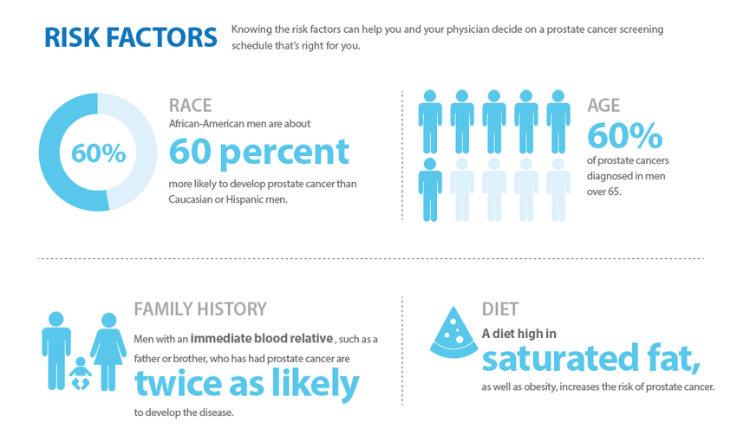
Knowing risk factors helps in reducing the chances of cancer. Advanced prostate cancer has several risk factors associated with it. Some of them are mentioned below.
- Age: The chances of developing prostate cancer increase, especially after 50. Approximately 60% of advanced prostate cancer are diagnosed in people aged 65 or above.
- Race: People of African origin are more commonly diagnosed with prostate cancer than white men. The fatality rate is also linked to race, as black people are more likely to die from advanced prostate cancer than white men.
- Family History: Familial prostate cancer is a type of cancer that is hereditary and accounts for 20% of total prostate cancers. BRCA1 and BRCA2 are the genes associated with the risk of prostate cancer.
- Eating Habits and Weight: Overeating and obesity are linked with most cancers, including advanced prostate cancer. Maintaining a normal weight and following a healthy diet are necessary to prevent cancer.
- Smoking: Tobacco consumption and smoking are the most prevalent risk factors for prostate cancer. It is the most common factor in people who have fatal prostate cancer.
What are the Treatment Options Available in Germany for Advanced Prostate Cancer?
Germany has a well-developed medical infrastructure and provides high-quality patient care. There are various innovative treatment options available in Germany for advanced prostate cancer like –
- Chemotherapy: It is the most common treatment option for both early-stage and advanced prostate cancer. It involves using chemical agents to destroy cancer cells. The most common drugs used for chemotherapy are docetaxel and cabazitaxel. Although chemotherapy can't cure metastatic prostate cancer, it helps relieve symptoms and improves the patient's quality of life.
- Radio Therapy: It involves using high radiation rays to destroy tumor cells. Different types of radiation therapy available in Germany are External Beam Radiation Therapy, Stereotactic Body Radiation Therapy, Brachytherapy or internal radiation therapy, and Intensity-modulated radiation therapy.
- High-Intensity Focused Ultrasound Ablation: This technique uses high-frequency sound waves to kill prostate cancer cells. It focuses on specific prostate parts and does not affect healthy cells.
- Virotherapy: It is a unique type of prostate cancer treatment offered by German Hospitals. It involves introducing oncotropic viruses, which are safe for humans but destroy cancer cells. Virotherapy is a relatively newer form of therapy that is used for advanced prostate cancer.
- Lu-177 PSMA Therapy: PSMA therapy is an advanced treatment for end-stage prostate cancer. In PSMA therapy, two drugs are used, namely PSMA-617 and Lutetium-177. PSMA-617 is a molecule that finds and attaches to the prostate-specific membrane antigen on cancer cells. Lutetium-177 is a radioactive medicine that emits radiation inside the body and kills cancer cells. Lu-177 PSMA therapy is effective in reducing tumor size and provides relief from symptoms of advanced prostate cancer.
- Hormone Therapy: Androgen deprivation therapy (ADT), or hormonal therapy, involves lowering testosterone levels either by surgical castration or medical castration. Lowering the levels of male hormones helps in slowing down the progression of prostate cancer.
- Targeted Therapy: Target therapy directly targets cancer-specific genes, tissues, and proteins that cause the growth of cancer cells. Targeted therapy is generally used for advanced prostate cancer that no longer responds to ADT (hormone therapy). Drugs used for this therapy include olaparib and rucaparib. These drugs are helpful for patients with BRCA1 and BRCA2 gene mutations.
- Cryosurgery: Also known as cryoablation or cryotherapy, it involves killing cancer cells by freezing prostate tissue. During surgery, a thin metal probe is inserted through a small incision, and a gas is released that freezes the prostate tissue.
- TURP: Transurethral resection of the prostate does not cure cancer but helps relieve symptoms of urinary blockage. It involves removing the inner tissues of the prostate. The surgery is a 1-2 hours long procedure and is performed under general anesthesia.
- Prostatectomy: It is a surgery performed by a surgical oncologist and involves the removal of the prostate along with surrounding lymph nodes. Laparoscopic or robotic prostatectomy is a newer form of surgery that is less invasive and shortens recovery time.
How Much Does Advanced Prostate Cancer Treatment in Germany Cost?
Germany offers cost-effective treatment options for advanced prostate cancer. The cost of prostate cancer in Germany is much less when compared to other developed nations. However, the country does not compromise on the quality of care and offers world-class medical services.
- Chemotherapy: USD 1800
- Radiation Therapy: USD 8000
- Prostatectomy: USD 20,000
- Lu-PSMA Therapy: USD 8600
These prices of therapy are tentative pricing and might vary from one hospital to another.
Top Oncologists in Germany Offering Prostate Cancer Treatment
- Dr. Anca-Ligia Grosu: She is an eminent Radiation Oncologist practicing in Freiburg, Germany, with four decades of experience. Dr. Grosu offers her excellence in radiosurgery, tomography, prostate cancer surgery, intraoperative radiation therapy, and stereotactic radiosurgery.
- Prof. Dr. Dimos Baltas: He is a well-known Radio Oncologist working in Freiburg, Germany, offering his expertise in minimally invasive procedures for prostate cancer. With an experience of 38+ years in medical radiation physics, he has seen the evolution from 1D, 2D, 3D, and 4D to 5D radiation planning.
- Prof. Dr. Med. Robert Krempien: Dr. Robert is a well-known Oncologist in Berlin, Germany, with over 25 years of experience. He is known for providing patient-centric individualized radiation therapy and has expertise in treating breast and prostate cancer.
- Prof. Dr. Med. Claus Belka: With an experience of over 28 years, Dr. Claus Belka is a renowned Oncologist in Munich, Germany. With around three decades of experience, He has now become an expert in breast cancer, gynecological cancer, prostate cancer, and osteosarcoma.
Conclusion
Germany is known for its well-developed healthcare infrastructure and is a leading destination for treating advanced prostate cancer. With a focus on innovation and research, the country offers the latest treatment options and evidence-based medicines. Healthcare professionals in Germany are highly skilled and trained by some of the best medical institutes in the world. They offer patient-centric individualized therapies that have high success rates. Advanced prostate cancer is well managed in Germany with the availability of modern medicines like Lu-177 PSMA, virotherapy, HIFU ablation, and targeted therapy.



